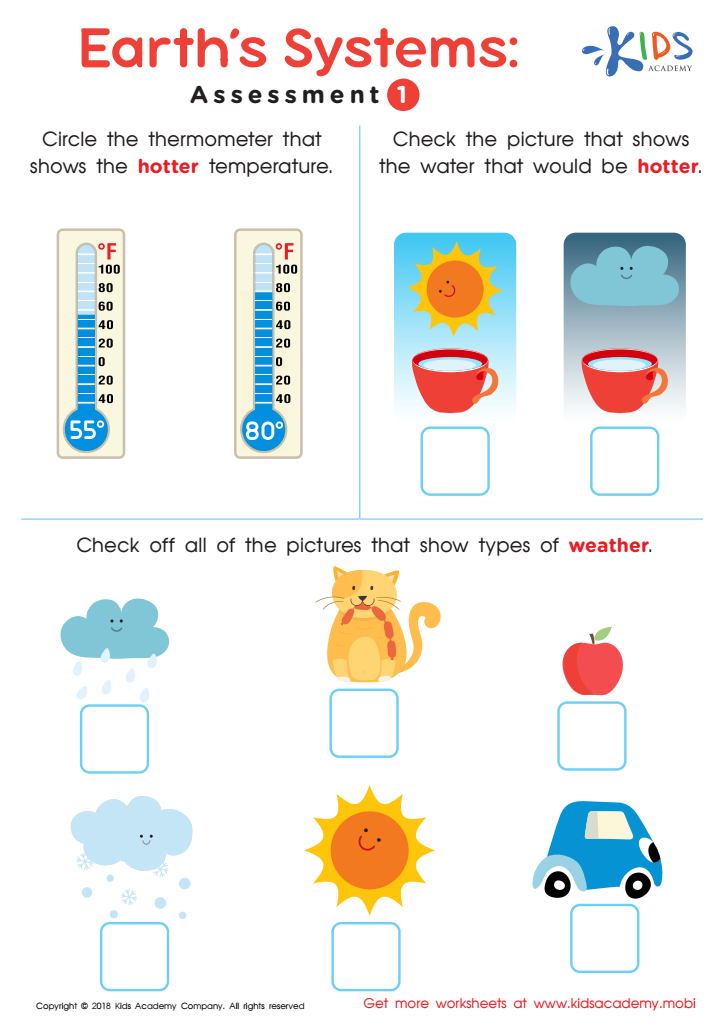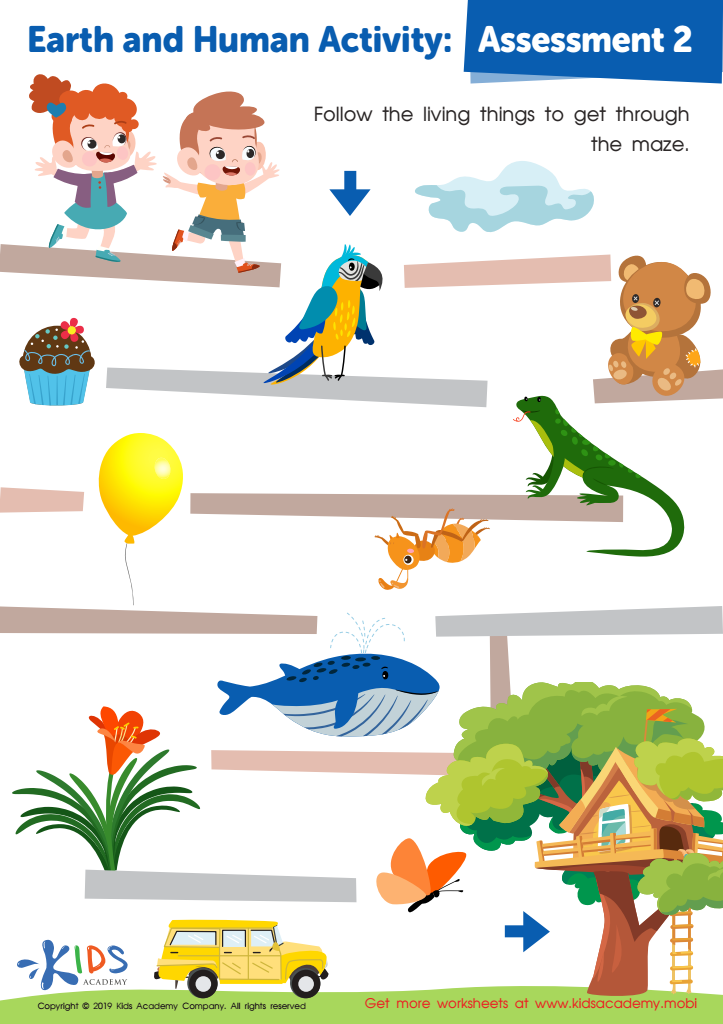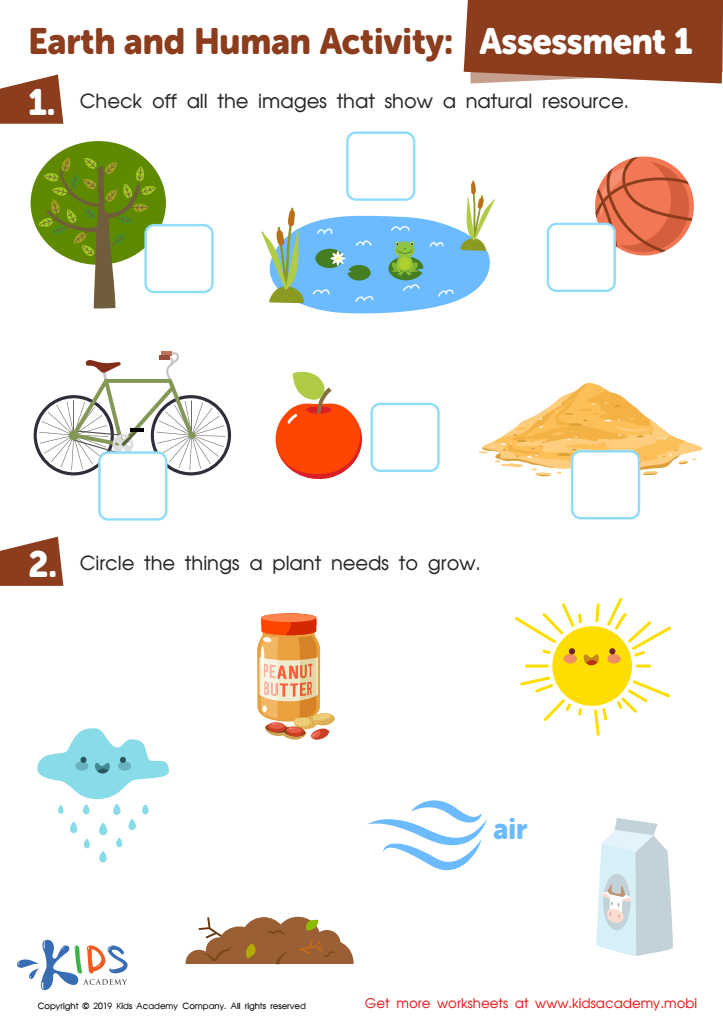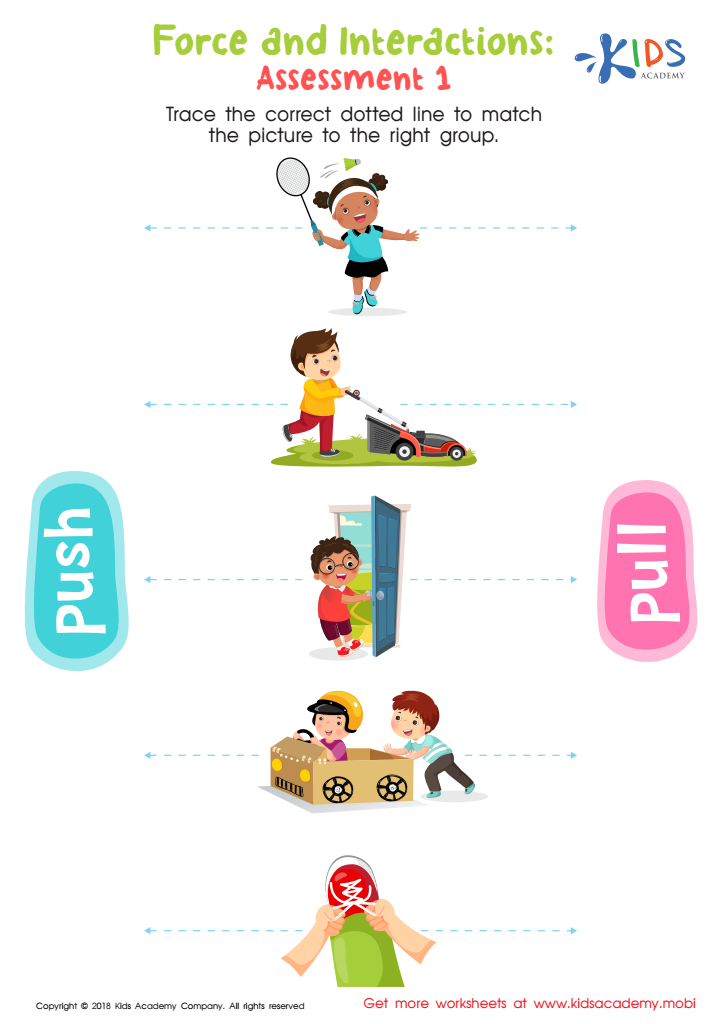Science Worksheets Activities With Answers for Ages 3-5
5 filtered results
-
From - To
Explore our vibrant collection of science worksheets designed specifically for children ages 3-5! Engage young minds with fun and interactive activities that introduce basic scientific concepts through colorful illustrations and simple instructions. Each worksheet includes answer keys, making it easy for parents and educators to guide learning. From exploring the wonders of nature to understanding basic physics, these worksheets foster curiosity and critical thinking skills. Ideal for preschool and kindergarten settings, our science worksheets promote hands-on learning experiences that are both educational and entertaining. Empower your child’s journey into the world of science today with these exciting resources!


Force and Interactions: Assessment 1 Worksheet


Earth's Systems: Assessment 1


Earth and Human Activity: Assessment 2 Worksheet


Earth and Human Activity: Assessment 1 Worksheet


Force and Interactions: Assessment 2 Worksheet
Science activities for children ages 3-5 are essential for fostering early curiosity and a love for learning. At this young age, kids are naturally inquisitive, asking questions about the world around them. Engaging in science activities helps satisfy this curiosity, encouraging them to explore, ask questions, and develop critical thinking skills.
For parents and teachers, these activities provide structured opportunities for hands-on learning. Simple experiments or nature observations introduce fundamental scientific concepts in an enjoyable and memorable way. Activities like identifying textures, observing colors in plants, or experimenting with floating and sinking create tangible experiences that reinforce understanding.
Moreover, early exposure to science promotes cognitive development: it enhances problem-solving capabilities and boosts creativity. Whether through guided questions during activities or discussions about results, educators can help nurture analytical reasoning.
Additionally, involving parents in science activities at home strengthens the child-parent bond while instilling a shared value for education. As children grow, the foundational skills developed through these early science experiences can pave the way for lifelong learning, a more profound interest in science, and informed citizenship in an increasingly complex world. In essence, science activities serve as a springboard for holistic development and an enriched educational experience.
 Assign to My Students
Assign to My Students













